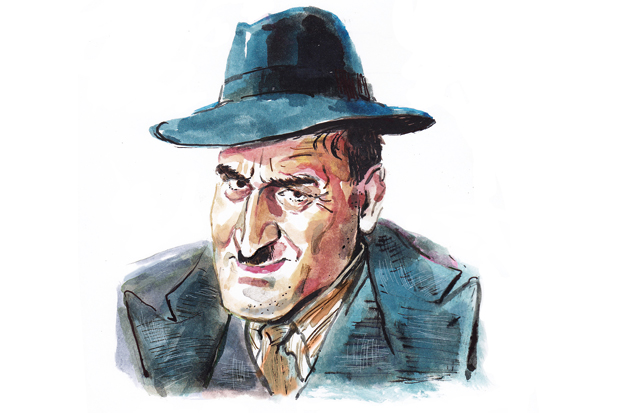Chimerica. The weird title of Lucy Kirkwood’s hit play conjoins the names of the eastern and western superpowers and promises to offer a snapshot of both nations just as the baton of economic primacy passes from America’s wizened youth to China’s reborn antiquity. The script has an unusually complex set of creative ambitions. It takes the formula of the romantic comedy, gives it a bittersweet twist, and plants it in the arid terrain of international politics. And it starts as a whodunnit.
Joe Schofield, a fêted American photo-journalist, was in Tiananmen Square in 1989 when he shot a few frames of the unknown citizen who halted a Chinese tank in its tracks. Scroll forward 23 years and Joe believes Tank Man is living undercover in America. Joe’s editor orders him to trace and interview the elusive humbler of China’s military might. A few scenes later, as in all good cop stories, Joe is warned to drop the story or face the sack. His hunger to find Tank Man is instantly redoubled. Many of the character details here seem improbable. Joe is strangely idealistic for a war reporter. Most of them are adrenalin junkies who have the same wish list as rock stars: chicks, excitement and fame. What makes Joe believable is that he’s an emotional shambles, in his mid-40s, beset by the growing need to form a stable relationship and start a family. His quest for Tank Man is a displacement for his thwarted emotional longings. We can see this. He can’t. This triggers our sympathy for him.
On a flight to China he’s seduced by a corporate exec who (unlike most corporate execs) is witty and self-knowing, and committed to the same enlightened liberal values as Joe. We go along with their romance because we admire their outlook and because their affair has the ragged uncertainties of real life. In China, Joe meets his old chum Zhang Lin, a mopey activist who — surprise, surprise — is also witty, self-knowing and committed to enlightened liberal values. He’s still grieving for his wife who died in the 1989 massacre, and he blots out his despair by trying to force the Beijing authorities to take responsibility for the city’s toxic smog.
Praise has been heaped on this show for delivering an amazing emotional punch and it does so by skilfully marshalling its components and by subtly flattering the audience’s vanity. The actors capture the off-beat, naturalistic ironies of the script perfectly. Stephen Campbell Moore, as Joe, has a gritty, sweet-natured charm. And Benedict Wong is splendidly touchy as the embittered Zhang Lin.
The yoof-pleasing set combines video grabs and dashes of graffiti with heavy doses of thumping music. Such effects can be hard to enjoy but here they honour and illuminate the script. Central to the design is a massive cube that conceals a warren of platforms, alcoves and cramped little balconies on which the actors perform their taut, wise-cracking dialogue. This visual trick reinforces the sense of emotional constriction that haunts the piece.
Lucy Kirkwood’s grasp of politics is amazingly assured. I detected only one false note. Joe asks a Democratic senator to give him the address of a party donor. This is illegal. When she refuses, he blackmails her with a secret photograph taken in 1972 showing her ‘snorting coke off a cheerleader’s forearm’ and wearing a pro-Nixon shirt. (The Nixon detail is supposed to be more embarrassing than the coke.) Neither is remotely believable. Hip young activists in 1972 regarded Nixon as the devil incarnate. And coke was a Hollywood drug back then. Students couldn’t afford it. Rather improbably, the senator submits to Joe’s threats and dispatches a noble-hearted intern to collect the photograph. As he takes the envelope from Joe, he delivers a homily on his boss’s proud record in the Senate as the corrector of countless injustices. This is how the play bewitches all-comers. It assumes that you share its unquestioning respect for freedom and democracy and for America’s position as liberty’s greatest champion. And it ignores the ugly truth that the senator, far from submitting to blackmail, would probably have ordered the Feds to loosen Joe’s front teeth while taking him into custody. But the play has set its eyes on a different horizon. It’s a superb piece of political escapism.
The scenes in which Tank Man’s identity is revealed are among the most heart-breaking you’ll ever see. And by the end of the play you half-believe you’re looking down on the agonies of humanity from a god-like position of detachment, wonder and pity. The final message — that love will conquer tyranny — is completely absurd but rather beguiling for all that. We don’t go to the theatre to change our minds, only to change our mood, and this show works that magic triumphantly.
Got something to add? Join the discussion and comment below.
Get 10 issues for just $10
Subscribe to The Spectator Australia today for the next 10 magazine issues, plus full online access, for just $10.
You might disagree with half of it, but you’ll enjoy reading all of it. Try your first month for free, then just $2 a week for the remainder of your first year.













Comments
Don't miss out
Join the conversation with other Spectator Australia readers. Subscribe to leave a comment.
SUBSCRIBEAlready a subscriber? Log in